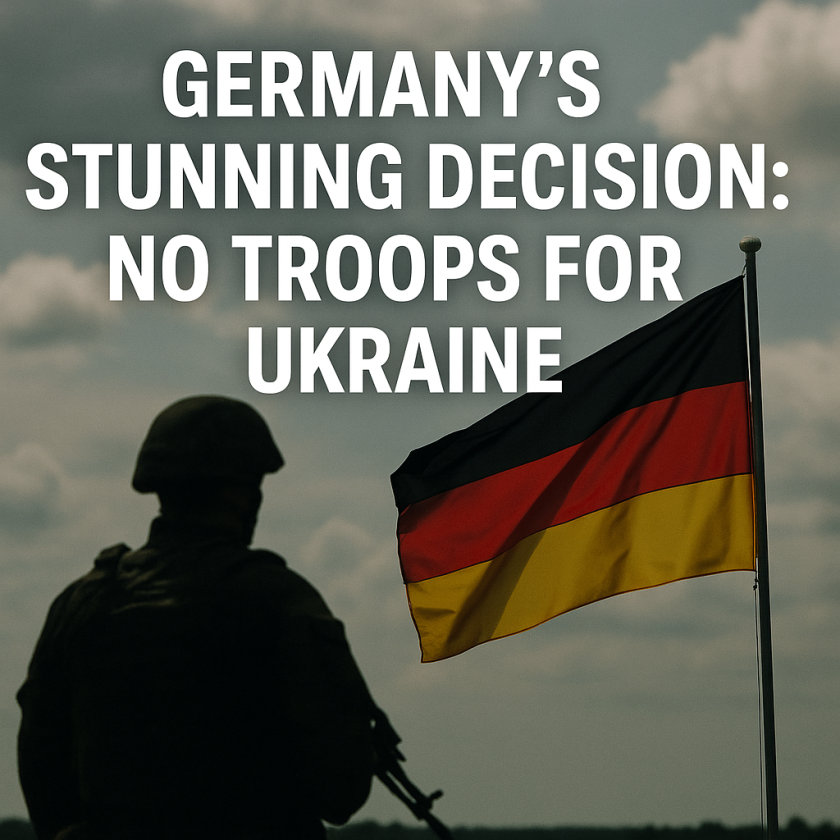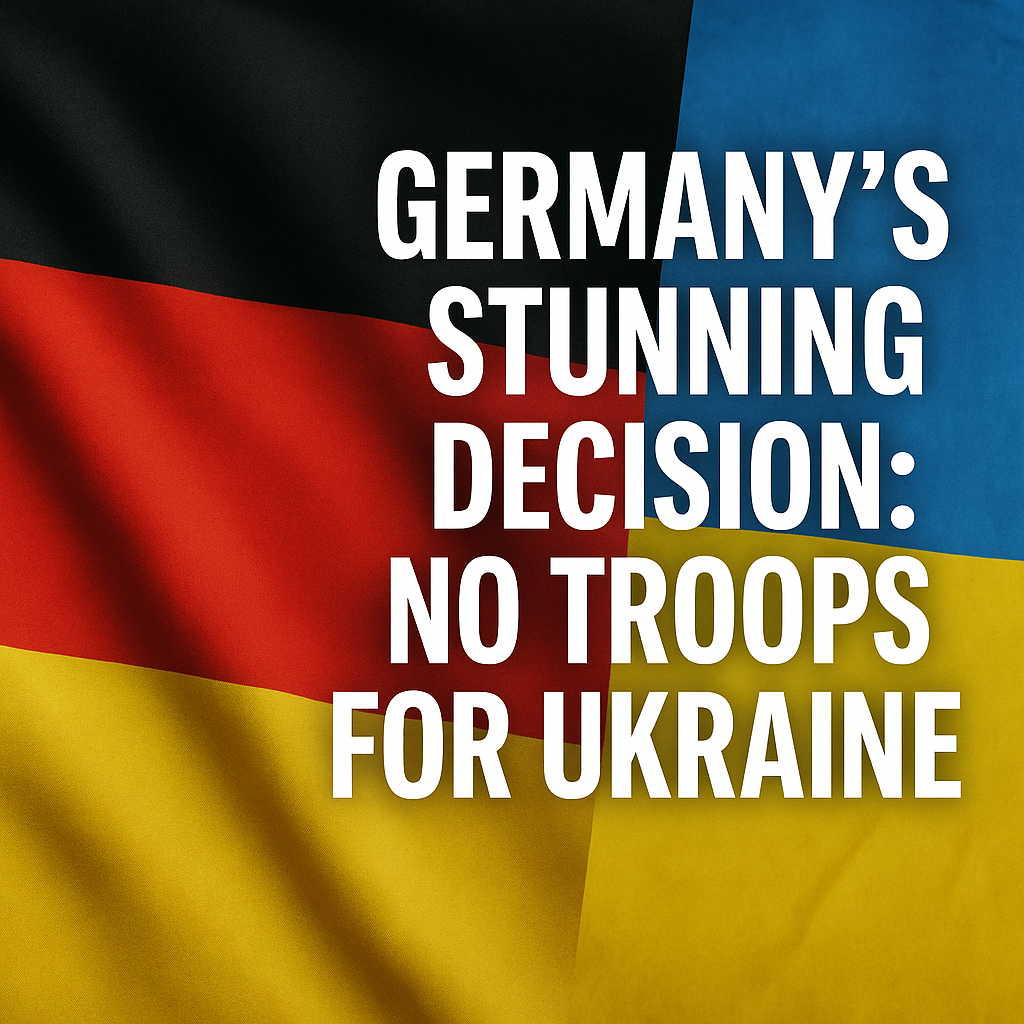Germany’s Stunning Decision: No Troops for Ukraine
Germany’s Stunning Decision: No Troops for Ukraine

Germany’s recent resolution to refrain from deploying troops to Ukraine has sent ripples through international relations and military strategy discussions. This decision comes amidst ongoing tensions between Ukraine and Russia, rendering it a topic ripe for analysis. Several underlying factors contribute to Germany’s stance, reflecting both domestic considerations and broader geopolitical dynamics.
Understanding Germany’s Position
The decision not to send German soldiers to Ukraine is not merely a tactical move; it embodies a complex interplay of historical, political, and economic factors. For one, Germany has historically exercised caution in military engagements, particularly in situations where the potential for escalation is significant. As reported by multiple sources, including Al Jazeera, Germany’s reluctance is partly rooted in its post-World War II identity which emphasizes diplomatic solutions over military intervention.
Moreover, public sentiment in Germany has generally leaned towards a preference for peace and diplomatic engagement. Recent polling data shows that a significant portion of the German populace supports a non-military approach to the conflict in Ukraine. These public perceptions considerably influence political leaders, contributing to the decision to maintain a defensive posture rather than a combative one.
The Tactical Landscape
From a military standpoint, Germany’s decision stems from strategic calculations about what level of involvement would most effectively support Ukraine without entering into direct conflict with Russia. Experts suggest that while logistical support and weapons supplies are viable forms of assistance, the introduction of ground troops could complicate the situation further. According to a report from RT, some military analysts argue that deploying troops could trigger a broader confrontation, which Germany is keen to avoid.
Furthermore, this decision aligns with Germany’s commitment to NATO’s principle of mutual defense, which emphasizes solidarity amongst member states without the obligation of direct intervention in external conflicts. This highlights a balancing act: Germany is keen to support its allies and uphold international law while simultaneously prioritizing national security interests.
International Reactions and Implications
The international community’s reactions to Germany’s decision have been mixed. Some NATO allies express disappointment, suggesting that without a firmer commitment from Germany, Ukraine may face difficulties in its ongoing defense efforts. For instance, discussions at NATO meetings reflect frustrations about perceived hesitancies from Germany, a key European player. Conversely, countries more inclined towards diplomatic resolutions appreciate Germany’s cautious approach, advocating for peaceful negotiations rather than military escalations.
This decision could also alter the dynamics within the European Union, where Germany’s role has often been characterized as a driver of collective action. Critics, including certain Eastern European nations, warn that Germany’s hesitation could embolden Russia in its military ambitions. On the other hand, proponents of a cautious approach argue that strengthening Ukraine’s defenses through non-military means may ultimately prove more effective in curbing Russian aggression.
A Path Forward: Finding Commonalities
Despite the varying perspectives on this issue, a consensus points to the need for a multifaceted approach. Diplomatic solutions, economic sanctions against Russia, and increased support for Ukraine’s defense through non-military means can work in tandem to avoid a full-blown military conflict. Germany may bolster its role in this area, focusing on providing humanitarian aid, logistical support, and defensive weaponry, which aligns with its current stance.
Ultimately, Germany’s decision not to send troops to Ukraine illustrates not just its national priorities but also the broader geopolitical tapestry of debates surrounding military intervention. As the situation evolves, it remains to be seen how this position might shift in response to changes in the conflict or pressures from allies.
Conclusion
Germany’s current approach represents a noteworthy chapter in the larger narrative of international military and diplomatic engagements. While some may argue for a more aggressive stance, the decision underlines the complexities of navigating modern conflicts where the stakes are high, and the consequences uncertain. By prioritizing diplomatic efforts and supporting Ukraine non-militarily, Germany may pave the way for a more sustainable resolution—one that avoids further escalation while promoting stability in the region.






































